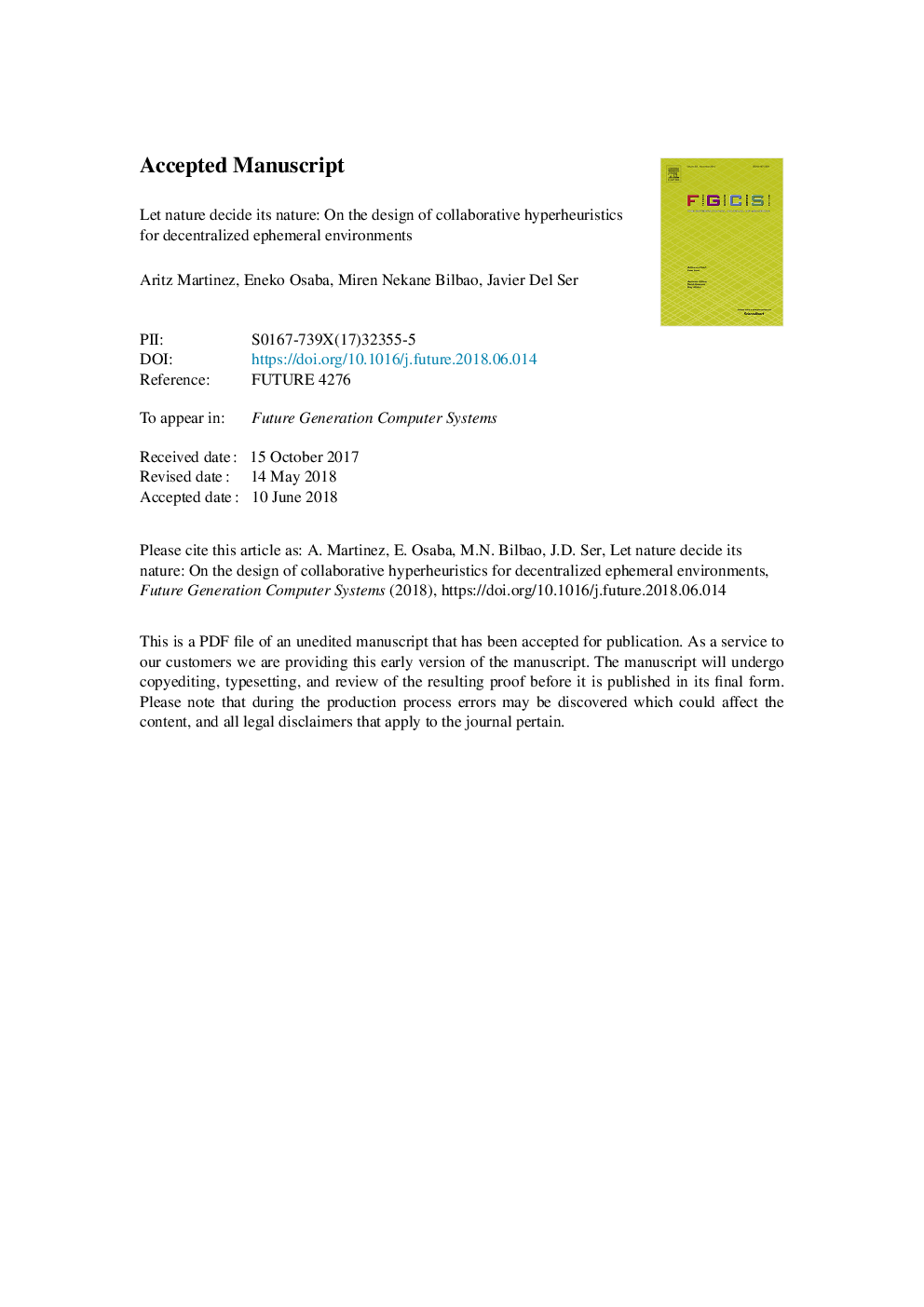| Article ID | Journal | Published Year | Pages | File Type |
|---|---|---|---|---|
| 11002440 | Future Generation Computer Systems | 2018 | 42 Pages |
Abstract
The research community has traditionally aimed at the derivation and development of metaheuristic solvers, suited to deal with problems of very diverse characteristics. Unfortunately, it is often the case that new metaheuristic techniques are presented and assessed in a reduced set of cases, mostly due to the lack of computational resources to undertake extensive performance studies over a sufficiently diverse set of optimization benchmarks. This manuscript explores how ephemeral environments could be exploited to efficiently construct metaheuristic algorithms by virtue of a collaborative, distributed nature-inspired hyperheuristic framework specifically designed to be deployed over unreliable, uncoordinated computation nodes. To this end, the designed framework defines two types of nodes (trackers and peers, similarly to peer-to-peer networks), both reacting resiliently to unexpected disconnections of nodes disregarding their type. Peer nodes exchange their populations (i.e. constructed algorithms) asynchronously, so that local optima are avoided at every peer thanks to the contribution by other nodes. Furthermore, the overall platform is fully scalable, allowing its users to implement and share newly derived operators and fitness functions so as to enrich the diversity and universality of the heuristic algorithms found by the framework. Results obtained from in-lab experiments with a reduced number of nodes are discussed to shed light on the evolution of the best solution of the framework with the number of connected peers and the tolerance of the network to node disconnections.
Related Topics
Physical Sciences and Engineering
Computer Science
Computational Theory and Mathematics
Authors
Aritz Martinez, Eneko Osaba, Miren Nekane Bilbao, Javier Del Ser,
